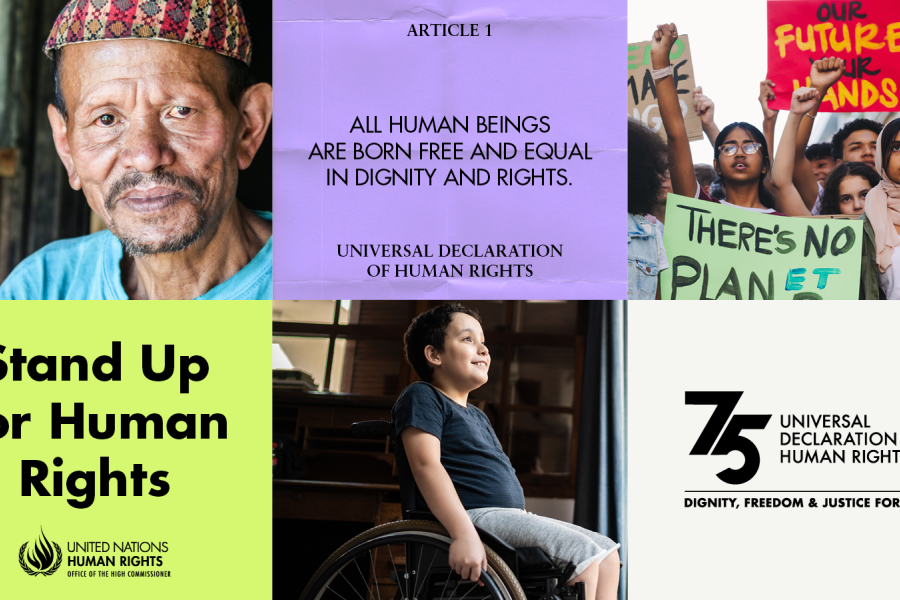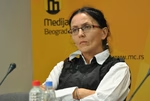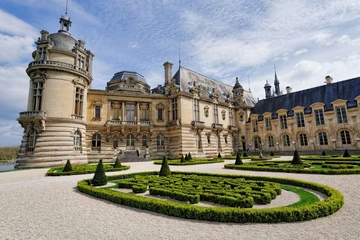
On 10 December 1948, in the wake of World War II (WWII), the United Nations adopted the Universal Declaration of Human Rights. This was the first ever universal recognition that every single person, everywhere, has inalienable, indivisible rights - civil, cultural, economic, political and social rights, the United Nations Resident Coordinator in Bosnia and Herzegovina, Ingrid Macdonald, said on the occasion of Human Rights Day.
For the first time in history, an international text enshrined a common vision of dignity, justice and equality for all.
Premised upon the recognition that contempt for human rights had led to the horrors of WWII, the Universal Declaration of Human Rights (UDHR) was a formidable promise of a new social contract. And much was accomplished over the following 70 years to strengthen the protection of human rights as the Declaration inspired the adoption of important human rights treaties that are binding on States parties, including Bosnia and Herzegovina.
However, as noted by the United Nations High Commissioner for Human Rights, Volker Turk, “the promise of the UDHR, of dignity and equality in rights, has been under attack”, referring to increasing conflicts, the climate crisis, economic instability, racial injustice, rollbacks in women’s rights, and misinformation.
The United Nations Secretary-General, Antonio Guterres, highlights that these trying times “require reignition of our collective commitment to protecting all human rights”. In his report “Our Common Agenda”, he stresses the need for a new social contract between governments and people, anchored in human rights.
A recent public survey conducted by the United Nations in Bosnia and Herzegovina indicates that citizens across the country, in both Entities and Brcko District, irrespective of ethnic identity, feel that their individual rights are not safeguarded and that institutions should be doing more to protect them. In areas such as health care, education, employment and environment protection, citizens want to see authorities prioritizing their wellbeing and prosperity.
The Universal Declaration of Human Rights is inscribed in the preamble of the Constitution of Bosnia and Herzegovina. As new authorities across Bosnia and Herzegovina begin their mandates, there is a great opportunity for authorities to uphold their responsibilities through a renewed social contract with citizens, anchored in human rights.
This is essential to rebuild trust in institutions and hope for a better future; with legislative, economic and social reforms that focus on upholding and improving the rights everyone who lives in this beautiful country, without discrimination; and with inclusive, participatory processes that enable citizens to take part in public affairs. A renewed social contract will also help Bosnia and Herzegovina deal with its painful past to build a better common future. As the High Commissioner said today, “even where the challenges seem intractable, if the leaders in politics and society would only centre their responses on human rights, the solutions will be always within sight”.
In doing so, it is critical to listen to the voice of citizens and leave no one behind. Civil society in Bosnia and Herzegovina has played an extraordinary role - survivors of atrocity crimes and violations, including conflict-related sexual violence, who have been at the forefront of the quest for justice and truth; journalists reporting on corruption; young peacebuilders combating hate speech; environmental activists engaged in protecting the natural wealth of the country; citizens calling for a more inclusive society; and so many others who have made a positive difference.
Throughout 2023, as we move towards the 75th anniversary of the Universal Declaration of Human Rights, the United Nations across the world, including Bosnia and Herzegovina, will engage in reviving the spirit and letter of this foundational text. We look forward to working across the country to keep alive the legacy and pertinence of the Declaration, together with the authorities, institutions and people of Bosnia and Herzegovina.
Kakvo je tvoje mišljenje o ovome?
Učestvuj u diskusiji ili pročitaj komentare





 Srbija
Srbija
 Hrvatska
Hrvatska
 Slovenija
Slovenija


























































